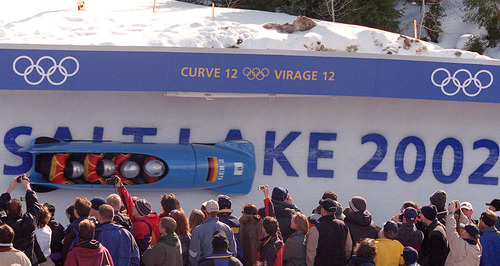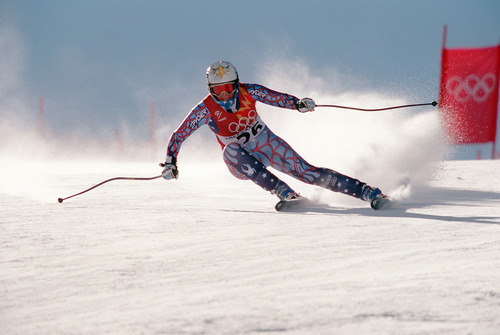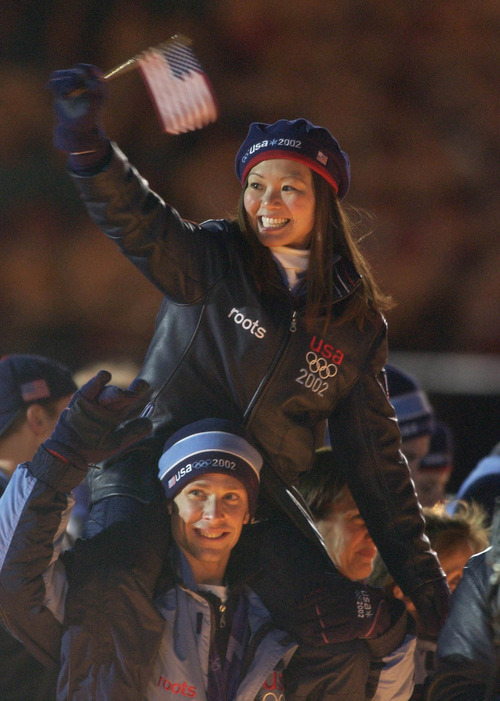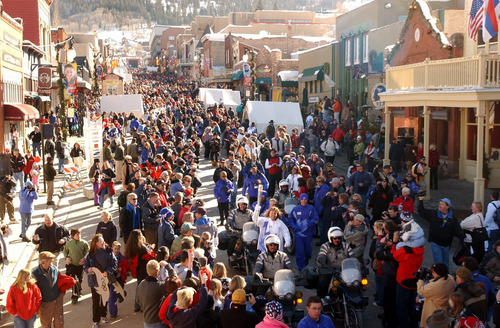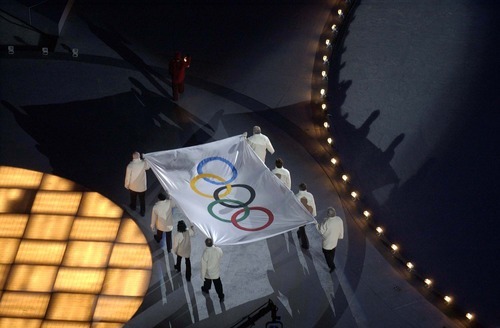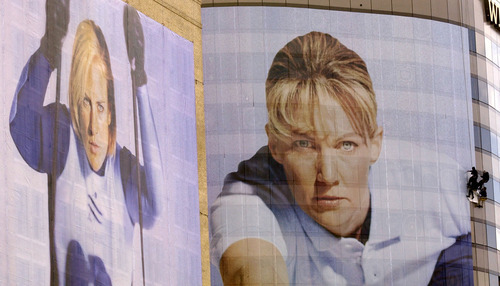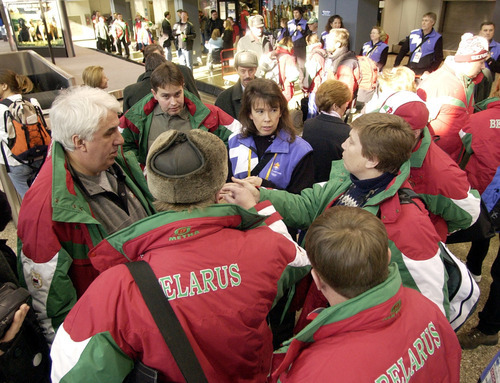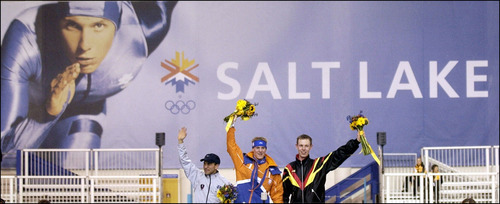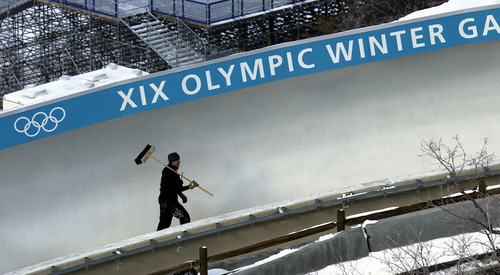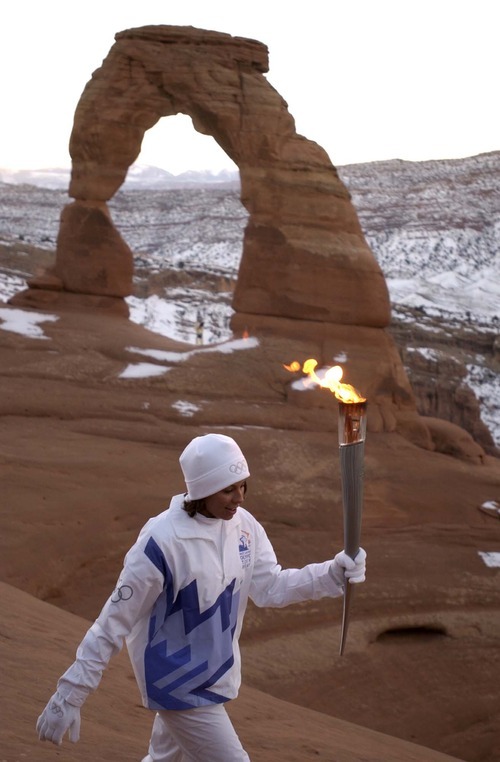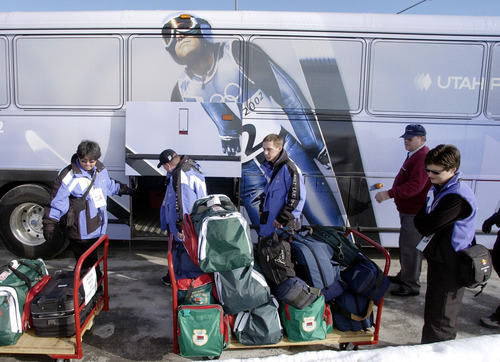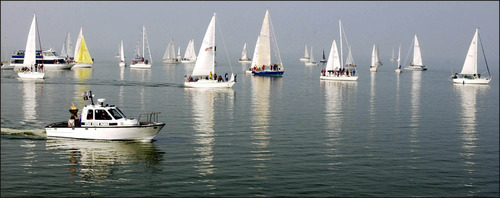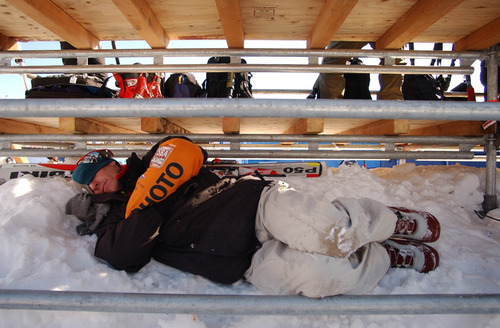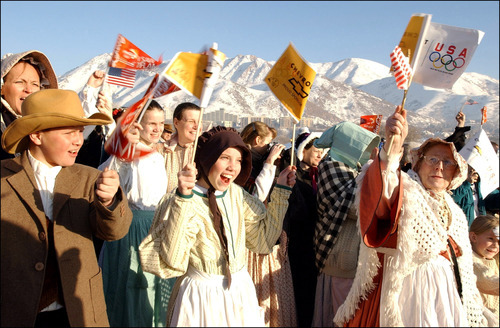This is an archived article that was published on sltrib.com in 2012, and information in the article may be outdated. It is provided only for personal research purposes and may not be reprinted.
Only hours after the Olympic flame went dark, downtown Salt Lake City streets were still, empty, the joyous frenzy of the previous 17 days gone just like that.
Gone but hardly forgotten.
During the past decade, memories of that invigorating time have evolved into a deep-seated sense of pride, a communal ego boost derived from knowing that we, as a people, accomplished something that will resonate through the ages. Utahns rose to the occasion after much turbulence to give the world a reason to celebrate when it needed it most, just five months after Sept. 11, reverently referenced in the Opening Ceremony by the presence of the tattered World Trade Center flag.
"The Olympics left behind any lingering inferiority complexes," said Fraser Bullock, the Salt Lake Organizing Committee's No. 2 man to Mitt Romney in putting on the 2002 Winter Games.
"When [outsiders] think, 'Could Salt Lake or Utah host XYZ convention or do this massive project?' We can just point to our fantastic Olympic experience. It shows we can do anything presented to us," he said, citing a parallel benefit. "The citizens of Utah also recognized that capability, which we've had all along. There's a bit of Olympic legacy inside each and every one of us."
Numbers verify it. At the four Olympics since Salt Lake City's shot at the big time, Utahns have been America's most avid viewers of Games' coverage on NBC — day in, day out, summer and winter.
That's not to say life changed overnight in February 2002. Poverty was not eradicated. Murders still occur. Legitimate looks at Salt Lake City's Olympic experience have concluded it did not alter the social order all that much.
"For all of the buildup, the length of time the city was involved in the process, the amount of resources — public and private — that were invested, the aftermath of holding the Olympics is surprisingly small," said Matthew Burbank, a University of Utah political scientist whose research includes studies of the Olympics and public policy. "Economically, it doesn't change the state's GDP [gross domestic product] in any way."
Before the Games, he said, outsiders thought of Utah primarily as the home of the Mormons. They still do.
In terms of promoting skiing, the driving force behind the state's first Olympic push in the 1960s, Utah's numbers are up 42 percent since 2002. Again, Burbank noted, Utah resorts lagged behind Colorado in number of skier days before the Games. They still do.
"The Games increased awareness of the area, but didn't change the business climate much," said Pete Taylor, a management recruiter in Salt Lake City. "There are still many perceptions of the area that have an effect, such as the funny liquor laws and 'If I am not a Mormon, will I fit in?' "
But even if stereotypes are hard to dispel and a $100 million profit is not enough to make much of a dent in the economy, the state clearly emerged from the Games with a better infrastructure than it had going into the process.
Hosting the Olympics accelerated deliveries of federal funds for building the first two TRAX lines, reconstructing Interstate 15 through Salt Lake County and upgrading numerous freeway interchanges serving competition venues. Advanced telecommunication systems were installed along the Wasatch Front and Back.
With Olympic money, the University of Utah added new student housing and increased seating capacity at Rice-Eccles Stadium, site of the Opening and Closing ceremonies. Without that expansion, would the Pac-10 have come knocking at the Utes' door so readily?
And what about the facilities — the speed skating oval in Kearns and the Utah Olympic Park complex of ski jumps, bobsled/luge track and freestyle aerials pool outside of Park City — that Utahns voted in 1989 to construct with $59 million in tax money, lacking any assurance Salt Lake City would get the Games?
This past year, their use by elite athletes and common fun-seekers has never been higher, testimony to the community's ongoing involvement in making Utah the country's winter sports capital. More evidence: Because of these facilities, 40 percent of U.S. team members at the 2010 Winter Games lived here full or part time.
Observed Spencer Eccles Jr., executive director of the Governor's Office of Economic Development and a second-generation Olympic booster: "I spoke to athletes at the last Olympics in Vancouver and they said, 'We watched the Olympics as kids in Salt Lake and trained on those venues and now we're Olympians. We set goals to be Olympians because of the [2002] Olympics.' "
Ice sheets were a rarity in Utah before the Games, but now they are plentiful — from Provo to West Valley City and up to Logan — offering recreational and training possibilities for figure skaters and hockey players.
The Olympics also served as a platform for promoters such as Jeff Robbins, of the Utah Sports Commission, to secure other events — from the Dew Tour to motocross.
"We have infrastructure and expertise," Robbins said. "To pull off one of the hardest sporting events in the world provided a sense of accomplishment that doesn't dissipate. It created a new base to do more and better things."
With billions worldwide watching the downhill and other ski races at nearby Snowbasin, Ogden emerged as a post-Olympic hub of recreation-oriented companies — from ski giant Amer Sports to longboard and surfboard maker Kahuna Creations.
"When people find out where our headquarters are," said Kahuna Creations President Steve McBride, "the success of the 2002 Olympics is often brought up. It helps with that 'cool factor' regarding where we are located."
Doesn't every city aspire to be cool?
Salt Lake City sure did back in the 1960s, when a group, including Chamber leader Fred Ball and Tribune Publisher Jack Gallivan, began pursuing the Games with Gov. Calvin Rampton. The chase picked up in 1989 with passage of the referendum, a milestone because "every resident in the state had a chance to say, 'I'm in' or 'I'm out.' Against some criticism and a lot of odds, we made it happen," said Jim Jardine, the Salt Lake City attorney who spearheaded the referendum campaign.
His reward: Seeing the unifying effect the Olympics had on Utahns as 2002 finally rolled around.
"We had volunteers from all financial circumstances, both political parties, all faiths. It really was a coming together," Jardine said. "That's one of the most satisfying things to me. As a community, some of the fault lines we sometimes see on issues disappeared."
That camaraderie, that determination to carry on through worrisome uncertainty about whether terrorists might strike despite beefed-up security, impressed International Olympic Committee member Anita DeFrantz, also a SLOC trustee.
"I hope the people of Salt Lake City understand they provided a great event for the Olympians of the world," she said. "I can tell you absolutely that the athletes who competed in Salt Lake thought the Games were just wonderful."
Count women's figure skating gold medalist Sarah Hughes among them. "Salt Lake City was five months after 9/11, so for the country to come together and have such a great Games, I think it really lifted the country's spirits in ways people didn't think [sports could]. I was happy to be a part of it."
So many were, from SLOC executives to volunteers, ticket buyers to people who simply loved walking the jammed streets — some with beers in hand — with throngs of Games' revelers from around the globe.
"We refused to enable a tragedy of epic proportions to get in the way of sharing with the world our pride in demonstrating the true spirit of the Olympic Winter Games," said Charlie Lansche, a Fidelity Investments executive active in Park City's Olympic circles.
"The Olympics helped us grow up and take stock of ourselves," said Sarah Bennett, a member of the Salt Lake County open-space advisory board. "We became a world leader on the stage of winter sport and were no longer some weird backwater where people believe strange things and have multiple wives."
For Maria Garciaz, a community organizer and SLOC trustee, the Olympics "taught us how to engage the community at a variety of levels for a common goal." And now, 10 years later, "when the Olympics is a topic of discussion, I enjoy watching people's faces light up with fond memories of their experiences and the people they met."
Connie Crandall certainly was not alone in believing "I would hate the disruption." But like many others, the official at the Rocky Mountain Center for Occupational and Environmental Health "ended up embracing the Games and had a blast."
As a professional host, Visit Salt Lake President Scott Beck knows better than most how much skepticism there was about whether staid Salt Lake City had the wherewithal to pull off the Olympics without looking hokey, hackneyed or dull.
"There was never a concern that our mountains and our venues would be anything other than world class," he said. "But there was a tangible feeling by many that we could not pull off the incredible sense of community.
"Fast-forward 10 years and it doesn't matter what it is we're attempting to accomplish," Beck said. "Due to the overwhelming success of our Olympics and the incredible impression we made, locals in Salt Lake and throughout the state know that we can now do anything we set our minds to. There is a genuine sense of confidence. Not an arrogance, but genuine confidence."
So now, as Utahns reflect for the next fortnight on what was accomplished in 2002, they can sit back and let the memories begin.
Tribune reporter Michael C. Lewis contributed to this story
mikeg@sltrib.comTwitter: @sltribmike


